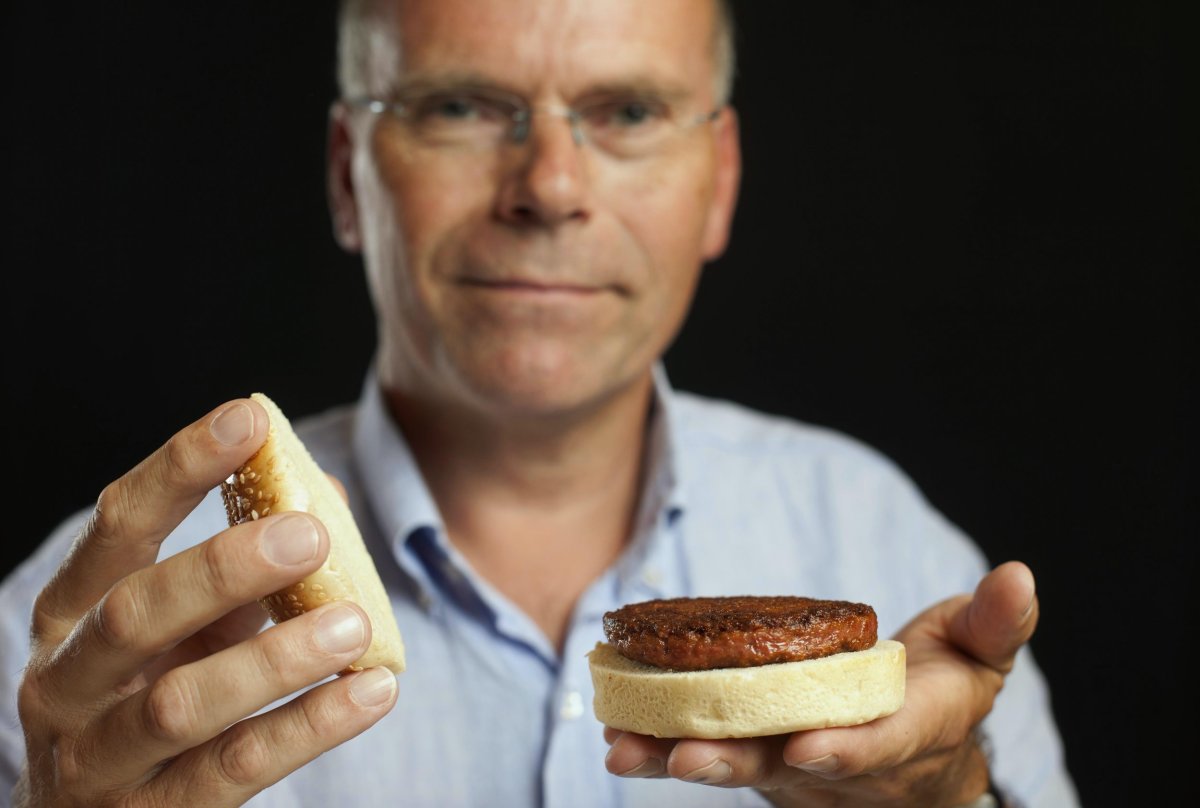In 1932 Winston Churchill said "Fifty years hence, we shall escape the absurdity of growing a whole chicken in order to eat the breast or wing, by growing these parts separately under a suitable medium." While the former Prime Minister's timing was out by nearly four decades, in recent weeks his prediction has moved a step closer to reality.
In vitro meat is becoming big business. Recently, China signed a $300-million trade deal to import slaughter-free meat technology from Israeli firms including SuperMeat and Meat the Future.
Similarly, Bill Gates and Richard Branson joined a consortium which is pumping $17 million into San Francisco–based Memphis Meats.
The money certainly has come a long way since the late '90s, when PETA first started putting what now looks like pocket change into research into "test-tube meat." It was then that I read a blurb in the New Scientist about the late Dutch researcher and entrepreneur Willem van Eelen, who, sickened by the bloodshed of war, began to explore the possibility of growing edible meat without having to slaughter animals.
PETA was one of the first organizations to fund research into the development of in vitro meat and the amount of money and variety of investors continues to skyrocket.
In 2008, when PETA announced a $1 million prize for the first laboratory to use chicken cells to create in vitro meat if the product were commercially viable, few people believed that there would ever be such a thing.
Now, everything has changed. PETA's contest put in vitro meat on the map, spawning thousands of news stories and creating a buzz that resonated around the world.
Even four years ago, when Mark Post and his team at Maastricht University—bankrolled by Google cofounder Sergey Brin—unveiled the world's first lab-grown burger at a press-frenzied event in London, mass-produced lab-grown meat seemed decades away from seeing the inside of a supermarket.

But this week's developments show that there is real and increasing interest in the firms that are pioneering animal-free food technology, and now the competition is heating up.
While others may have first wondered why a vegan organization jumped at the chance to support the development of a new type of meat, our view is this: If technology can help end animal suffering, we're all for it.
Throw in that it will combat the environmental damage caused by raising, transporting, and killing live animals as well as helping to abate world hunger and make the food supply safer, and it's a no-brainer.
Will consumers eat this stuff? Well, if you've ever seen the offal, blood and guts and manure mixed together on the slaughterhouse floor, or the worms inside animals' stomachs as they are cut open, and you still eat meat, then surely you'd prefer a version which has been manufactured in a lab?
Unlike in vitro –meat laboratories, factory farms and slaughterhouses are far from humane, clean, or sterile. On factory farms, pigs are confined to cages so small that they can't even turn around, cows are crammed together by the thousands in mud- and feces-filled feedlots, and chickens are kept in huge, windowless sheds.
Footage from inside slaughterhouses shows animals who are scalded to death, skinned, and hacked apart or whose throats are cut while they're still conscious and struggling.
According to scientists from the universities of Oxford and Amsterdam, compared to meat production using live animals, creating lab-grown meat produces 96 percent fewer greenhouse-gas emissions and requires up to 99 percent less land, 96 percent less water, and 45 percent less energy . In vitro products also contain no antibiotics and are free of pathogens that could lead to pandemics.
For these reasons as well as the hard-to-overlook evidence that cruelty to animals is rife in the meat industry, a growing number of consumers are shunning meat from animals and adopting plant-based diets. You can't move without falling over a vegan these days.
Of course, fantastic, tasty mock meats exist already in the form of fakin' bacon, meat-free chicken patties, mock lobster and various veggie burgers – from nut and soya to bean and grain – which offer the taste of meat without any of the cholesterol and cruelty.
You can visit PETA.org for a free vegan starter kit full of delicious recipes, but for people addicted from childhood to the cholesterol and saturated fat in flesh, lab-grown meat will provide them with the "methadone" for their habit.
If you feel that you've missed the boat on these high-tech food investments, fear not—there are still opportunities to jump on board. In the quest to provide "firm-to-table" food, other companies are working hard to create not just hamburgers, pork sausages, and steak bites but also fishless tuna, cluck-less chicken, and cow-free cow's milk and cheese.
Not to mention the huge number of young and talented vegan designers working on animal-free fur, wool, and leather made from apples, tea, tofu, wine, and any number of other plant-based materials.
These days, it's a free market—and a cruelty-free one, too.
Ingrid Newkirk is president of People for the Ethical Treatment of Animals (PETA) www.PETA.org .
Uncommon Knowledge
Newsweek is committed to challenging conventional wisdom and finding connections in the search for common ground.
Newsweek is committed to challenging conventional wisdom and finding connections in the search for common ground.
About the writer
To read how Newsweek uses AI as a newsroom tool, Click here.








